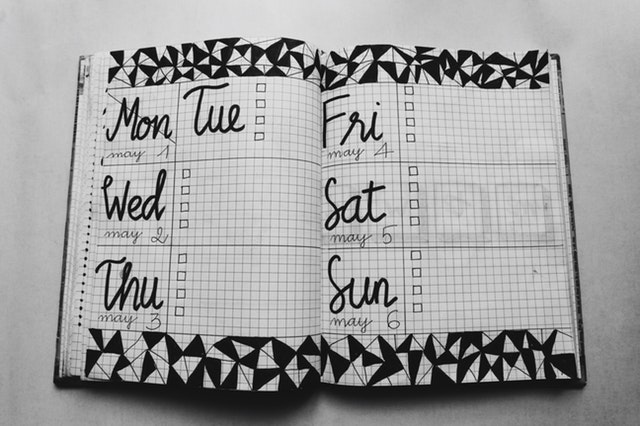Review: The One Thing
Learn how to break down your goal so that the first step is clear by reading The One Thing: The Surprisingly Simple Truth Behind Extraordinary Results.

Break down your big goal so that the first step is clear and obvious and then do it. The authors Gary Keller and Jay Papasan explain the how in The One Thing: The Surprisingly Simple Truth Behind Extraordinary Results.
To paraphrase from the book, what is the one thing which by doing it everything else becomes easier or unnecessary? Figure this out and you can achieve anything.
The One Thing is an approach to living, that allows us to get the most out of life. Accept the reality of what you want to change or achieve, distil it down to its essence and then act accordingly, one step at a time.
The book is supported by a community centred around The 1 Thing Podcast. The company created from the book to develop the community offers additional training for those who want to become experts at living The One Thing. Note that there are loads of free resources as well as dedicated paid training.
Myths
A key mistake we make is to believe that everything matters equally. We look at our email in box and think that every email needs to be read. Or at our to-do list and believe that it doesn’t matter what tasks we should to first. This is one of several myths the book tries to bust open in part one.
One take-away I got is that it would be far more important to spend a quality five minutes with my young children to listen to something they want to talk about, giving it full attention and responding to the details, than to be checking emails on my phone while half listening to the story in the background.
Questioning what you are doing on a constant basis is challenging but quickly brings rewards. Is what I am planning to do, right now, really the best use of my time.
Other myths are unveiled such as the fallacy of multitasking, the importance of balancing your life and why big is not necessarily bad. These and others are discussed in more depth.
After reading part one you may think, “So what should I be doing?” The rest of the book is given over to helping you to dream big, figure out the most important thing to do, and to enable the habits that can help you live your dreams.
Big Goals
What are your goals? Dream big, and try to envisage what success would be if you were to achieve it. Don’t limit this to a particular amount of time, simply think that if you achieved this goal someday that you would be happy.
Now think about this goal and try to answer the following question called the focusing question. “What is the one thing you could do in the next five years such that by doing it you would be closer to achieving that lifetime goal?”
The authors show how by repeating this question for one year, one month, one week, one day and for now, you can really focus on what the most important thing to be doing this moment is.
If you are new to The One Thing, then for you the one thing is probably to figure out what your one thing is. Maybe you should get the book and read it or listen to an episode or two of The 1 Thing Podcast?
Time Blocking
As we saw in the Deep Work review, creating time to do that important thing is probably the most important piece of advice in the book. The authors call this Time Blocking.
They take this to an interesting extreme. You should start the week by blocking out time on a calendar to do the thing or things you have chosen as the one thing. Even if that’s simply a fifteen minute period right after getting up to do some meditation, put it on the calendar.
Don’t forget to schedule vacations and downtime. You need to be able to take time away from your one thing. By marking the time you won’t do something on the calendar it makes it visual. You can clearly see the remaining effort possible and set your targets appropriately.
Time blocking can be applied to any area of your life: spiritual, physical health, personal, relationships, jobs, business, financial.
In each area you may have one thing to concentrate on, the next biggest step to do on the road to achieving your goals. Choosing between which one of the one things you need to do next is a challenge. Time blocking, to give each slice the appropriate amount of time can help.

The key is to start trying; you may find that your efforts to improve your job, business of finances makes no progress until you realise that first you need to get your personal life under control.
It may be the other way around, how can you improve your personal life until the pressures of providing for your family are reached by making improvements in your job or career.
Form a Habit
Doing something worthwhile that will result in the big goal eventually, takes effort. For example, if your big thing is to write a novel, that takes commitment every day to get up and put words onto a page.
When starting out, this could take disciple and will power to keep coming back to the word processor (or type writer), struggling through tougher days. How long can one keep this sort of effort up? A novel could be in the region of one hundred thousand words. Can you last that long?
The good news is that after a while this constant practice develops into a habit. Habits usually have a trigger, a task and a reward. The trigger might be that you write first thing in the morning. What’s the reward?
The book cites research that shows that it takes on average sixty-six days of consistently doing something to make it a habit. It can take discipline and will power during that time to continue to do the work, but after that it becomes a habit.
They propose a simple technique to help with the process of turning your one thing into a daily habit, incorporating a slightly contrived reward. It’s as old as the hills, but remarkably refreshing when you try it out: simply put an X on the calendar whenever you do the one thing on that day.

Soon enough, and with a little effort, you can have a string of Xs that shows off your consistency. Tell your family or work colleagues what the marks mean; they will support you and give the encouragement. It’s amazing how important making that X soon gets to be. It really does become a reward in of itself.
I don’t have a huge issue with discipline; I’ve been waking up early to write for quite some time. So I’ve been trying this technique with Tai Chi. I’m quite a novice, but to advance I will need a lot of practice. Simply doing fifteen minutes a day is helping and I’ve a string of about twenty Xs on my calendar.
Conclusion
There is a lot of value in this book, things that you can take away and work with immediately. If you do not have time to read the book, or listen to the audio book, check out the podcast. Many of the book’s topics are shown in practice through interviews with the authors and the people within The One Thing community.
